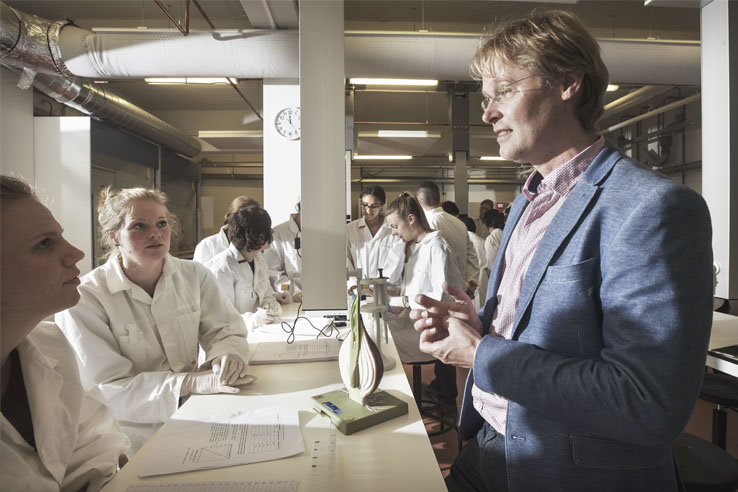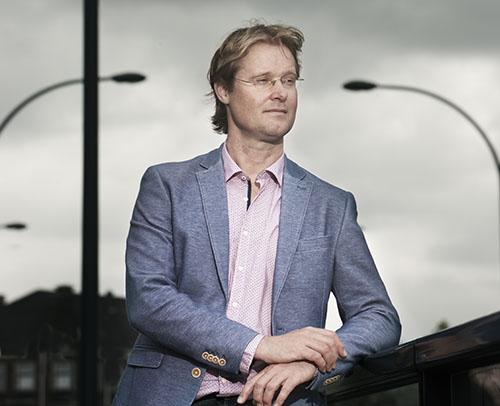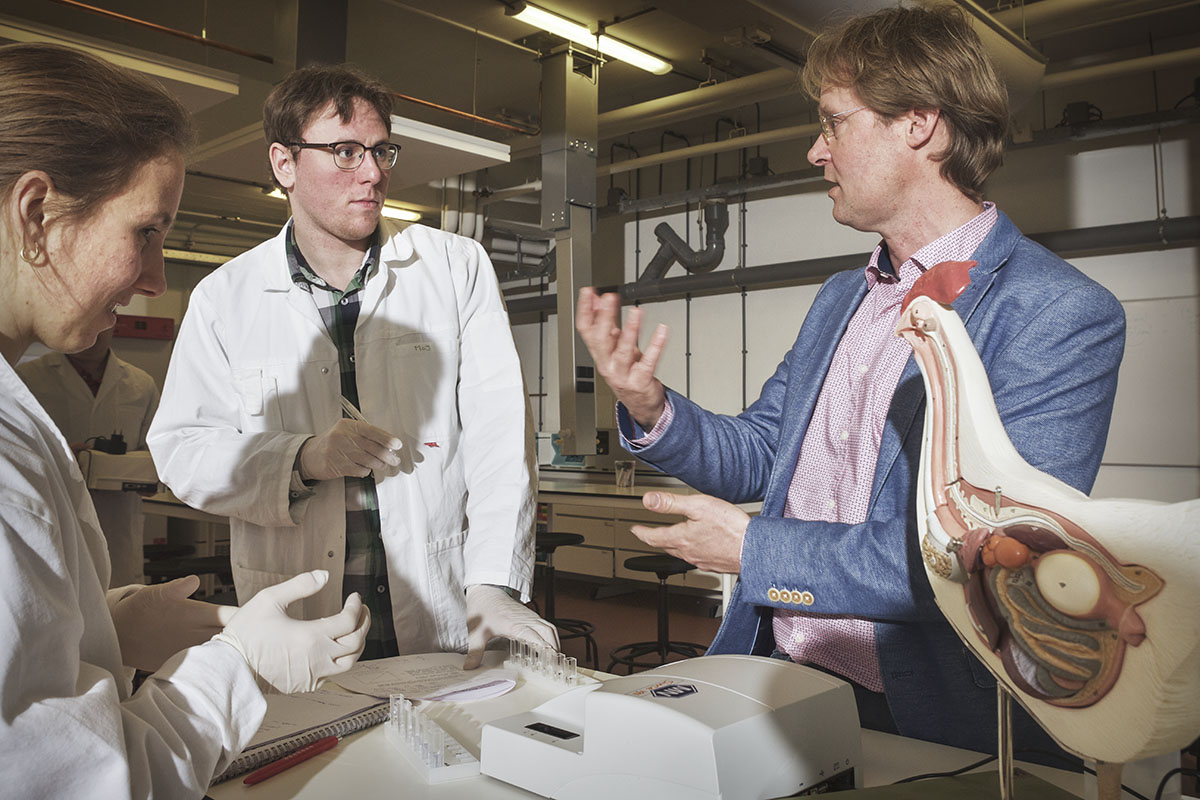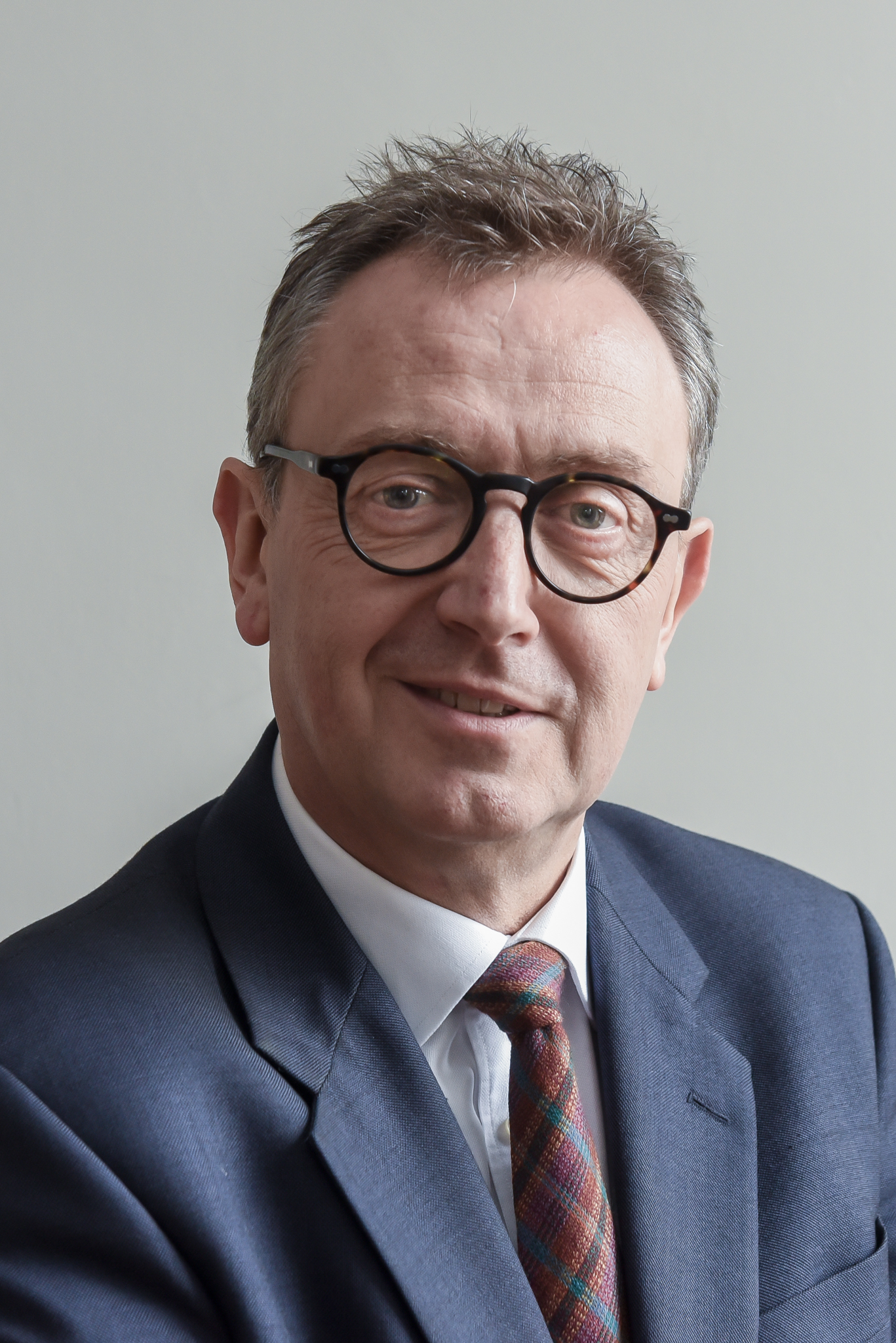Golden combination of commerce and science
The success of the master’s programme in Health Food Innovation Management was one of the critical factors in whether or not to establish a Maastricht University campus in Venlo. The graduation of the sixth class puts an end to any possible doubt. “We’re sticking around; we’ve proven that we have a right to exist”, says associate professor and programme coordinator Freddy Troost.
In fact, the Venlo campus will soon be moving to a larger location. The number of programmes has been expanded and the number of students is expected to increase from about 150 now to 500. Thus, Campus Venlo is a full-fledged branch of Maastricht University.


Freddy Troost (1973) studied health sciences at Maastricht University. Since graduating in 1992, he has been an associate professor and researcher, and since 2014 the coordinator for the master’s programme in Health Food Innovation Management.
Freddy Troost certainly does not want to claim all the credit. The other master’s programme, Global Supply Chain Management and Change, and the bachelor’s programme in the form of a University College are popular with students from around the world. “That’s right”, says the health scientist who remained in Maastricht as a researcher and teacher after graduating in 1992. “The two-year master’s programme in Health Food Innovation Management has attracted many academics and graduates from universities of applied sciences. Since the start in 2009, we select about 40 new students each year from the applicants. A quarter come from abroad—from Germany and Belgium to Brazil and Turkey. Why? First, because there’s a strong demand for experts in the field of innovations in food and nutrition. With the increase in the global population, the call is growing louder for effective production of healthy food in particular. Nowhere in the world can you find a comparable master’s programme.”
Pioneering
It is a bold statement that requires justification. Freddy Troost, enthusiastic and passionate, laughs. “But it’s true. We are pioneering here in Venlo with a new approach. It’s wonderful to do, and it can only be done at a young university. The groups are small, the lines of communication short. I know every student personally. This master’s programme primarily involves translating scientific research into tangible products. A lot of research is being done on the effects of certain substances in food on the human body. Scientists and companies look for elements that have a beneficial effect on cardiovascular disease, dementia, osteoporosis, obesity and dozens of other ailments. Good results can be found in the laboratory and clinical tests, but this doesn’t mean that it actually ends up in large-scale production. Promising inventions and great ideas from companies themselves continue too often to be shelved, both by multinationals and SMEs. In this master’s programme, it’s all about the next step.”

Business case
Thus, the starting point in the master’s programme in Health Food Innovation Management is not scientific research. “No, our students all have a solid background in nutrition and health, but in addition to coming up with and developing a food innovation, they make a business case. It involves both the commercial feasibility as well as the medical aspects. A good example is the product claim. As a producer, you really want to tell people that your supplement positively affects cholesterol balance or helps to ensure sufficient calcium in the bones. But the law surrounding this is very strict. Without the claim, production is usually not economically feasible. Our students examine how this works and what you can claim.”
The curriculum of the master’s programme is therefore developed using expertise from different faculties at Maastricht University: Health, Medicine and Life Sciences; Law; and Business and Economics. “We connect the different disciplines, and that’s unique. You need to have an affinity for the practical application of knowledge. You have to speak the language of the entrepreneur.”
Internship
Another thing that’s special about this master’s programme is the final internship, which lasts six months. “Students themselves look for the business where they want to conduct their final research project. They present a proposal to investigate the feasibility of a finding. It works brilliantly. Many students are offered a job after the internship. Of the 150 graduates, almost everyone has a job; the majority work at a food company and about 10 per cent choose a career in academics. This programme is a hit.”
Julian Mellentin, director of Nutrition Business, about the master’s programme in Health Food Innovation Management:
“Last year for the first time, we hired a master’s student from Campus Venlo”, says director Julian Mellentin. “Recently, the second one started and the experiences, quite frankly, are astonishingly good. I’d never hired people without work experience, but these two didn’t need it. During their internship, they came with concrete plans for some of our contacts. These are now being implemented. One young woman has developed a promising new product with dairy manufacturer Fonterra, one of the top ten in the world. Large-scale production is going to start soon.”
Innovative
It’s not entirely coincidental that the two graduates ended up in London. “I had previously been invited for several lectures at Maastricht University. There I was introduced to this master’s programme. Truly innovative. The students are academically qualified in the field of food and nutrition, but they also speak the language of the entrepreneur. They can empathise, have a sense of commercialism and come up with solutions to problems. I don’t know of a single master’s programme in food and nutrition that links science with commerce. Absolutely ideal. A golden combination.”
Translating
Julian Mellentin expects to fly more interns in from Venlo in the future. “Absolutely. We urgently need academics to translate knowledge into valorisation. And yes, there’s a big chance that we’ll lose them to our clients. Understandably, they’re located worldwide in very interesting markets. That’s fine, we’ll again hire new people.”

Nutrition Business is a relatively small company with headquarters in London and offices in the US and New Zealand. Nutrition Business analyses markets based on hundreds of interviews with executives in the world of food and nutrition, identifies trends and advises producers of food and nutrition products on bringing innovations and new products to market.
Also read
-
Four young UM researchers have received a Veni grant worth up to €320,000 from the Dutch Research Council (NWO). This will allow them to further develop their own research ideas over the next three years.
-
Billions of dollars in foreign aid could be spent more effectively if international poverty statistics weren’t so inaccurate. Says Dr Michail Moatsos, Assistant Professor at Maastricht University School of Business and Economics.


